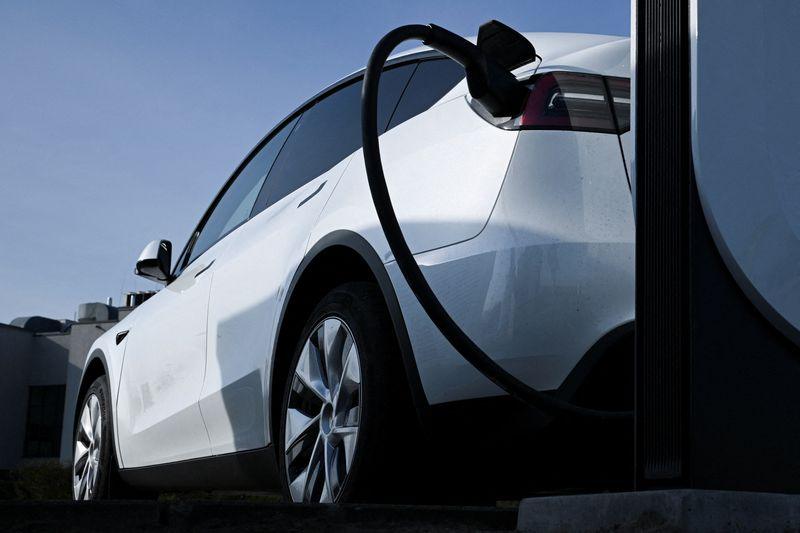Investing.com — In a Tuesday note to clients, Deutsche Bank (ETR:DBKGn) analysts shared their five key takeaways from their recent expert call with Curtis Dubay, the Chief Economist at the US Chamber of Commerce, where they discussed the impact of Trump 2.0 on the auto industry.
1) The discussion highlighted that significant changes to electric vehicle (EV) tax credits are improbable before the end of 2025 due to the legislative process required for policy alterations.
The expert call emphasized that any changes President-elect Trump may wish to implement would necessitate congressional review and approval, a process that could not be circumvented even by the Department of Government Efficiency (DOGE).
2) This clarification comes amidst recent headlines suggesting a straightforward elimination of EV tax credits, which “may not be representative of the top priorities of the Trump administration,” Deutsche Bank’s note states.
3) Furthermore, the analysis suggested that the Trump administration may not prioritize the removal of EV tax credits immediately. Instead, the topic is expected to surface during bipartisan negotiations over tax reform, especially with the expiration of the Tax Cuts and Jobs Act (TCJA) in 2025.
4) Also, the DOGE’s ability to act as a “CEO” of the government is limited by legal and procedural constraints. “Two years will likely not be enough time to implement major changes, but where it can scrutinize is likely related to waste, fraud, and abuse of spending,” analysts said.
5) Lastly, the conversation addressed the topic of tariffs. While imposing a blanket tariff on all imported goods would necessitate a national security justification, which might be challenging to substantiate, the possibility of reinstating tariffs against China and Mexico was acknowledged as more likely to be considered.
President-elect Trump announced last week to impose significant tariffs on the United States’ three largest trading partners—Canada, Mexico, and China—aiming to fulfill campaign promises that could risk sparking trade conflicts.
Trump, set to take office on January 20, proposed a 25% tariff on goods from Canada and Mexico, tying the measure to efforts to curb drug trafficking, particularly fentanyl, and reduce migrant crossings at the border. This approach appears to challenge the terms of an existing free-trade agreement.
Regarding China, Trump unveiled plans for an “additional 10% tariff, above any additional tariffs,” though the implications remain unclear.
He has previously vowed to revoke China’s most-favored-nation trade status and impose tariffs exceeding 60% on Chinese imports, a level much higher than those seen during his first presidency.

